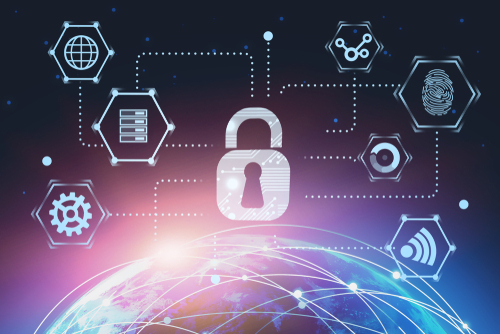The aftermath of the pandemic has created many lasting security concerns for companies. But, in other ways, it has forced many companies to adapt for the better. And though it’s always been important, the accelerated transition to remote work worldwide has made cybersecurity more important for businesses to prioritize than ever before.
The rise of remote work has dramatically increased the number of digital vulnerabilities that companies now face with the growing probability that employees mishandle company data. In tandem with that, bad actors on the Internet now see a digital landscape brimming with opportunities for them to maliciously access.
If more companies intend to continue providing their teams the option to work remotely, they must adapt their security measures to stay afloat and thrive in the digital landscape.
Growing Cybersecurity Threats
It’s estimated that one in every five Americans will be working remotely by 2025. Responsible HR officers need to anticipate the threats and set up precautions in light of this increase. As the number of remote workers in the United States grows, so does the vulnerability of corporate data to hackers. Companies need to educate their employees about the growing security risks that coincide with their everyday tasks and how to protect against those risks.
For instance, sensitive company data like passwords, cloud files, e-mails, and local files needs to be tightly contained so it isn’t exposed to prying eyes. However, employees may utilize the same password on multiple accounts for their personal devices or even use the same password for both personal and work accounts. They must learn more about best practices related to passwords so they can keep proprietary information from falling into the wrong hands.
Remote Culture
Dealing with remote culture itself may pose a security threat to your organization.
As an HR professional, you’re on the front lines of the management challenges raised by increasingly remote cultures. You have to be aware of these challenges and prepared to deal with them when they arise. Poorly handling these challenges can open up additional security risks. For instance, if you’re unable to train employees well on the security risks they face or don’t clearly communicate expectations on how to handle cyberthreats, employees won’t be equipped with the information they need to maintain high security standards.
You have to do your best to manage these challenges to keep both information and employees secure at work. Furthermore, you’ll also need to keep up with any changes in remote work or your own organization’s culture to safeguard your company in the future.
Data Breaches
Data privacy is vital to remote teams and organizations. This means you must have safety measures in place for remote workers in case their data is accidentally mishandled or compromised. There are tools, such as data preservation software, that can help act as that safety net.
However, using data backup software doesn’t preclude workers from being carefree. They should still exercise extreme caution with sensitive information and adhere to security best practices in their daily work. While backup software and even data loss response plans can offer peace of mind if an accident or a breach does occur, prevention should always be your top priority.
Employees’ Mental Health
Although it may strike you as an odd connection, employees’ mental health can play a role in remote security.
If remote employees are not engaged, are suffering from burnout, or are experiencing boredom in their work, they may be prone to making tangible mistakes that can jeopardize the company. Furthermore, there are health risks specific to working from home that can impact remote employees and even make them more likely to experience some of the issues listed above.
Though employees must also do their part to take care of themselves, HR teams should do what they can to tend to the mental health of their remote employees. This will help ensure they’re doing well as human beings (not just as employees) and are given the necessary attention and support they need to thrive.
Lack of Cybersecurity Knowledge
Companies need to impress upon their workers that their remote work environment needs to be treated like a digital fortress. Employees need to understand the basics of remote work security, and they need to know that the choices they make, the things they browse, the keystrokes they type, and the things they speak on virtual calls can all be stolen and leveraged by hackers if they’re not careful.
Creating and implementing an information security program is key to cybersecurity. Training employees to use their work computers strictly for work purposes and having them password-protect their work devices when they’re not using them are paramount. HR should communicate known risks involved to help illustrate to workers the weight they carry and why it’s so important that they be discrete with company data.
Tools and Equipment
In addition, HR should equip remote workers with the necessary technology and tools to accomplish their daily activities safely.
Installing a network monitoring system, purchasing VPN software, enabling two-factor authentication, and implementing cloud-based data storage are all steps that can make a remote employee’s digital workspace digitally hygienic.
Consider also providing company-issued computers, tablets, or smartphones rather than allowing employees to use their own devices. This ensures your equipment is already outfitted with the right security solutions employees need to stay safe while working.
Conclusion
Sensitive data is becoming more meshed with online activity, and it’s essential to protect it like you would your own private information. If not, your company could lose money, time, resources, and even public trust due to lost data. Take the precautionary steps now to secure your company for the future.
Indiana Lee is a writer, reader, and jigsaw puzzle enthusiast from the Pacific Northwest. She’s an expert on business operations, leadership, marketing, and lifestyle, and you can connect with her on LinkedIn.

